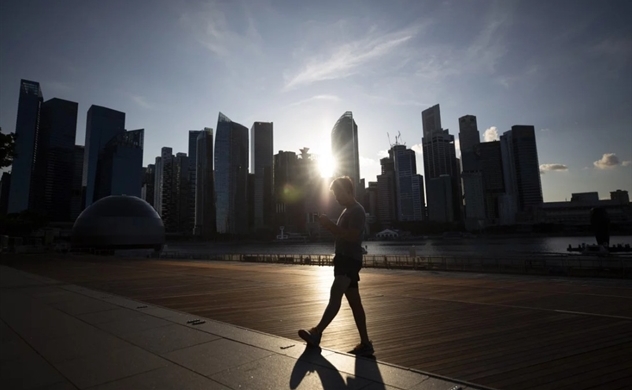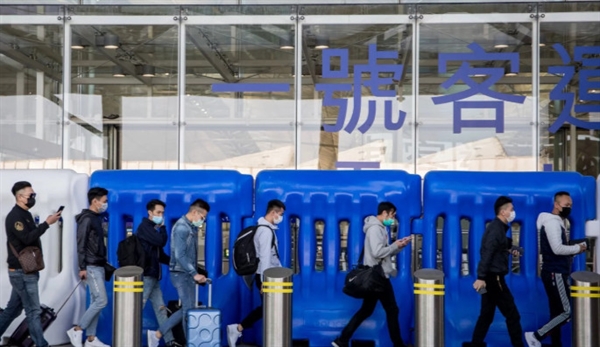Singapore unveils $4.6 billion economic boost in budget to battle coronavirus outbreak

The package comprises a S$800 million health care package, S$4 billion for businesses and workers, and another S$1.6 billion going toward households to tide them over.
“Just as the global economy was beginning to recover, the coronavirus … outbreak hit us,” said Finance Minister Heng Swee Keat during his budget speech that ran for more than two hours. “The outbreak will certainly impact our economy … Our first concern is to protect you and your families.”
Until the virus outbreak escalated last month, all eyes had been on whether the 2020 budget would be filled with goodies given the impending general election tipped to take place this year, though Singapore has until April 2021 to go to the polls.
Most analysts said they expected the budget to still contain sweeteners – such as special transfers including subsidies for health care costs and one-off cash payments – but that it would be largely focused on combating the economic fallout from the outbreak.
Heng announced a jobs support scheme to help companies retain workers that will see the government offset 8 per cent of wages up to a monthly cap of S$3,600 per worker, for a three-month period. All tax paying companies will get a 25 per cent rebate on their taxes for this year, capped at S$15,000 per company.
 |
| Singapore’s Finance Minister Heng Swee Keat. Photo: Reuters |
Sectors directly affected by the virus outbreak – such as tourism, aviation and retail – will also receive targeted help. Changi Airport, for example, will get a 15 per cent property tax rebate.
About S$1.6 billion earmarked specifically for households will result in all Singaporeans above the age of 21 getting a cash payment of S$100 to S$300 depending on their income, while lower-income Singaporeans will get additional help with public transport and groceries. Community groups will also receive funding.
Heng also announced he would delay the planned goods and services tax (GST) hike given the state of the economy, but warned that it could not be postponed indefinitely because of fiscal needs.
The GST increase from 7 per cent to 9 per cent was supposed to happen between next year and 2025, and this year’s budget also includes a S$6 billion package to help Singaporeans face the impending increase.
“This will help most Singapore households cover at least five years of additional GST expense,” Heng said, adding that the expectation was of a larger budget deficit of S$10.95 billion for the next financial year starting April 1.
The last time Singapore projected a similarly large deficit – of around S$8.9 billion – was in 2009, when it announced a raft of financial measures to deal with the global financial crisis. The deficit later shrank to S$819 million. Last year, Singapore’s projection of a S$3.48 billion deficit surprised on the upside as the deficit came in at S$1.65 billion.
 |
| Travellers wearing face masks walk outside a terminal building at Hong Kong International Airport. Photo: Bloomberg |
Even though Heng’s S$10.95 billion estimate is Singapore’s largest projected deficit, the government is not drawing on past reserves, unlike in 2009 when it withdrew S$4.9 billion.
The 2020 budget is funded by accumulated fiscal surplus “with our fiscal prudence since the beginning of this term of government,” he said.
The finance minister said the coronavirus outbreak was a stark reminder to be fiscally prudent so the country could “deal with surprises and unexpected scenarios”.
Heng had earlier said the outbreak had led to the inclusion of financial measures that were not in the original draft budget.
The novel coronavirus, which causes a pneumonia-like illness known as Covid-19, has infected more than 73,000 people worldwide, killing 1,873. The bulk of the infections and deaths are in mainland China – where economic growth is expected to slow to 4.5 per cent in the first quarter of 2020, down from 6 per cent in the previous quarter, according to a Reuters poll of economists.
Like other economies around the region that are dependent on trade, investments and tourism from China, Singapore has downgraded its GDP forecast for the year. The trade and industry ministry estimates annual growth will be between -0.5 to 1.5 per cent, down from 0.5 to 2.5 per cent previously.
Last week, Hong Kong’s Chief Executive Carrie Lam Cheng Yuet-ngor pledged to disburse handouts totalling HK$25 billion (US$3.22 billion) to businesses and vulnerable groups reeling from the coronavirus outbreak, and offered direct subsidies for firms to make masks amid a dire shortage that has triggered long queues throughout the city.
The Hong Kong government is expected to announce its annual budget on Feb 26.
Source: SCMP
Same category news
-
Tsubasa Suruga
-
Kenya Akama - Fumika Sato

 TIẾNG VIỆT
TIẾNG VIỆT 










_131447820.png)







